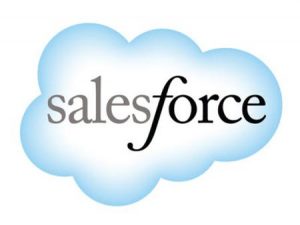 "Tom Peters reflects on a half-century spent studying management."
"Tom Peters reflects on a half-century spent studying management."
Suze Orman: Pay Off Debt ASAP, and Not Because It Costs You Money
 "Don't wait to start paying off what you owe, because otherwise what you owe will hold you back, Suze Orman, personal finance expert and best-selling author of "Women & Money," tells CNBC Make It. "Debt is bondage," she says. 'You will never, ever, ever have financial freedom if you have debt.'"
"Don't wait to start paying off what you owe, because otherwise what you owe will hold you back, Suze Orman, personal finance expert and best-selling author of "Women & Money," tells CNBC Make It. "Debt is bondage," she says. 'You will never, ever, ever have financial freedom if you have debt.'"
24 Brands You Probably Didn’t Know Were Owned by Amazon
These Stores Have the Best Return Policies in Retail
 "Costco has one of the most generous return policies of any store. It says that any product can be returned to Costco warehouses for any reason. The only restrictions are on electronics, which must be returned within 90 days."
"Costco has one of the most generous return policies of any store. It says that any product can be returned to Costco warehouses for any reason. The only restrictions are on electronics, which must be returned within 90 days."
Mary Hanbury (photo, left) reports on the other generous retailers at BusinessInsider.com.
Stop Blaming the Help. How Companies Stymie Great CX
 "As my friend and colleague Bassam Salem likes to say (and I will paraphrase), it’s always the hapless call center representative that is scapegoated for corporations’ failings. The people who are paid the least and are usually the least to blame but are almost always the targets," writes Dave Fish (photo, left) in an article at CustomerThink.com.
"As my friend and colleague Bassam Salem likes to say (and I will paraphrase), it’s always the hapless call center representative that is scapegoated for corporations’ failings. The people who are paid the least and are usually the least to blame but are almost always the targets," writes Dave Fish (photo, left) in an article at CustomerThink.com.
"If we peel it back a bit we can see that in many circumstances it is not the employee, it is the communication, technology, policies, procedures, educational, and selection practice of the company that is at fault. Here are a few of the most frequent culprits. . . ."
These Are the Brands with the Most Loyal Shoppers
5 Ways Your Small Business Can Save Time With AI
The Hot College Gig: Online Brand Promoter
 "Paying college students to push products is nothing new for companies. The exuberant undergraduate wearing a Nike cap and giving out samples is as common on American campuses as football fans tailgating at homecoming," writes Claire Ballentine (photo, left) in an article at NYTimes.com.
"Paying college students to push products is nothing new for companies. The exuberant undergraduate wearing a Nike cap and giving out samples is as common on American campuses as football fans tailgating at homecoming," writes Claire Ballentine (photo, left) in an article at NYTimes.com.
"But now, like so much in the advertising world, the big action is online. As students return to campuses, they’re constantly checking their Instagram, Snapchat and other social media accounts — so companies are turning to many of them to promote products right alongside photos of family, friends and the new puppy."



